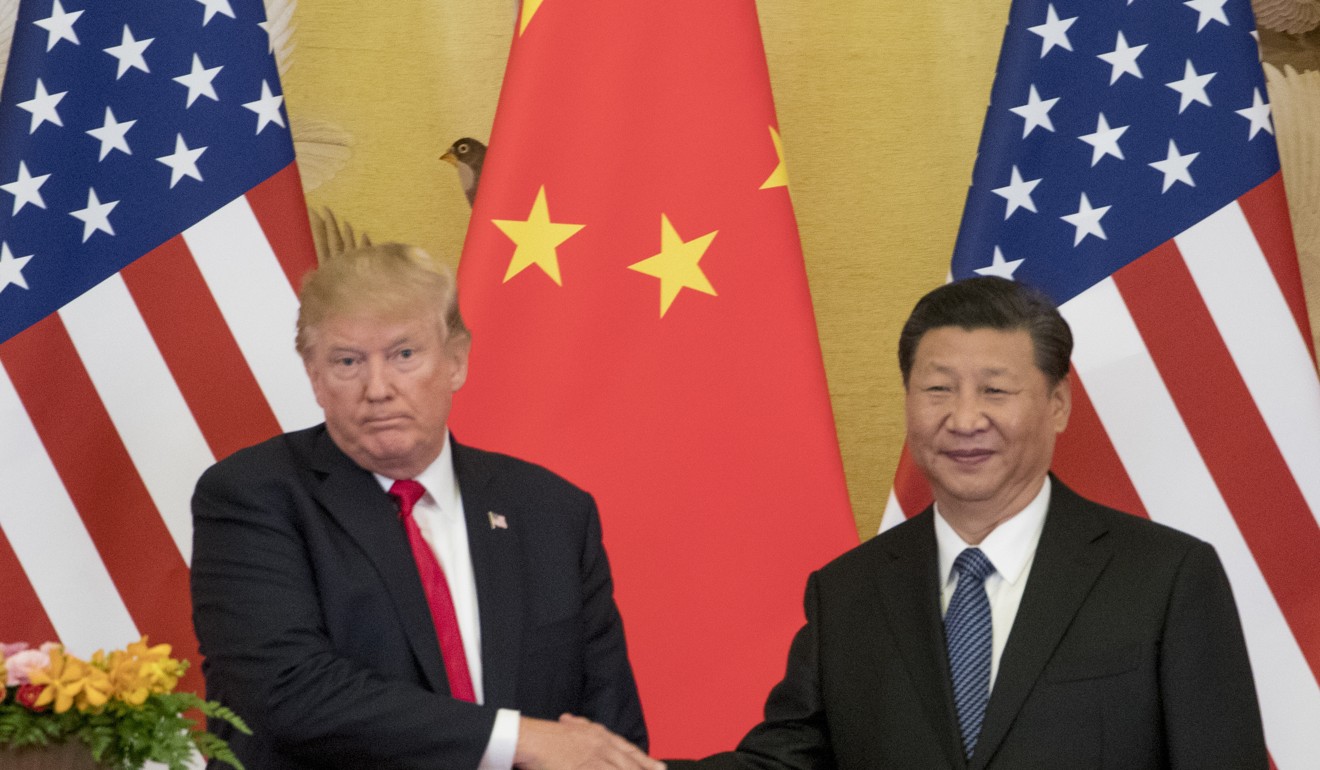
Top Beijing official attacks US over WTO reforms, and says China economy is not as developed as claimed
- Head of Chinese Academy of Social Sciences says doubts about country’s economic status come from ignorance
- Thinly veiled attack comes days before President Xi Jinping and President Donald Trump meet in Argentina
A top Beijing official hit back at attempts to change the country’s economic status as part of reforms to the World Trade Organisation during a conference in Hong Kong on Tuesday.
In an interview with The Wall Street Journal published on Monday, Trump said he was prepared to impose a tariff of either 10 per cent or 25 per cent on US$267 billion of imports from China, if Xi Jinping could not agree to further opening China’s market to US companies during the G20 Summit, which starts on Friday.
Trump and Xi to reach trade war ‘truce’ at G20, says scholar with close ties to Beijing
But Xie said China’s position in the global economy was “seriously overestimated”.
“As China’s comprehensive strength and international status develops, some voices have emerged doubting if China remains a developing country,” said Xie, at the international forum on China’s economy and policy, which was organised by the academy, and the Hong Kong government’s Policy Innovation and Coordination Office.
“Such doubts come partly from the shortage of knowledge of China, and partly from some countries advancing their own interests.”
The Yale, Harvard and Cambridge-educated economist did not name any country, or comment directly on the trade war. However, when elaborating on China’s trade capacity, which he said was one of three areas of misunderstanding surrounding China’s status, he cited iPhone production as a case where other countries benefited more.

The smartphones and laptops made in China for Apple could also be hit by the new tariff, according to Trump.
“The value added to China’s smartphone makers was merely 3.6 per cent of the phone’s wholesale price, and the rest goes to companies in the developed countries,” Xie said. “Therefore the more we export, the more the developed countries actually benefit.
“It means China’s position in the global production link, and its gains from international trade, are seriously overestimated.
“Some people are blinded by China’s huge trade volume, and neglect the fact that the country is still in the lower end of the global value chain.”
Four ways Donald Trump and Xi Jinping could reframe US-China relations
Other facts often ignored, according to Xie, included that the average personal income of Chinese people was below the global average, and that vast rural areas in China were still far behind urban areas in terms of development.
“The doubts surrounding China’s development status … show it is necessary to reform the global governance rules, and make them more fair and just,” Xie said.
He said it was unfair and unjust international rules, whose drafting had been dominated by the developed countries, that brought conflicts due to differing expectations amid globalisation.
“Some countries recklessly promote unilateralism and protectionism,” Xie said.
“Some countries have no sense of the shared future for mankind, perceive themselves as the great powers, and sacrifice other countries for their own interests.”
Xie said China would continue to promote an open global economy, and take international responsibility in line with the country’s strength and rights.

